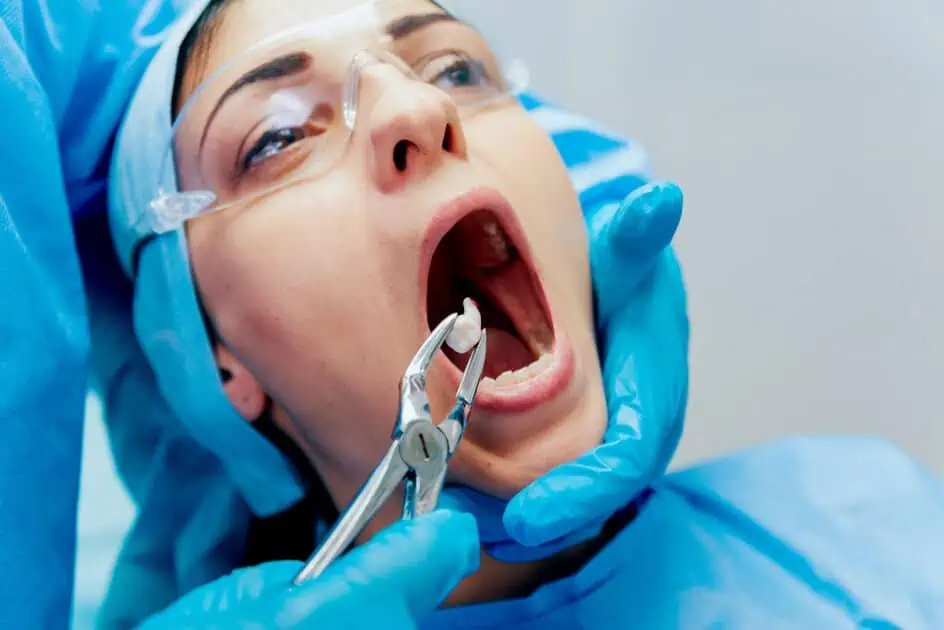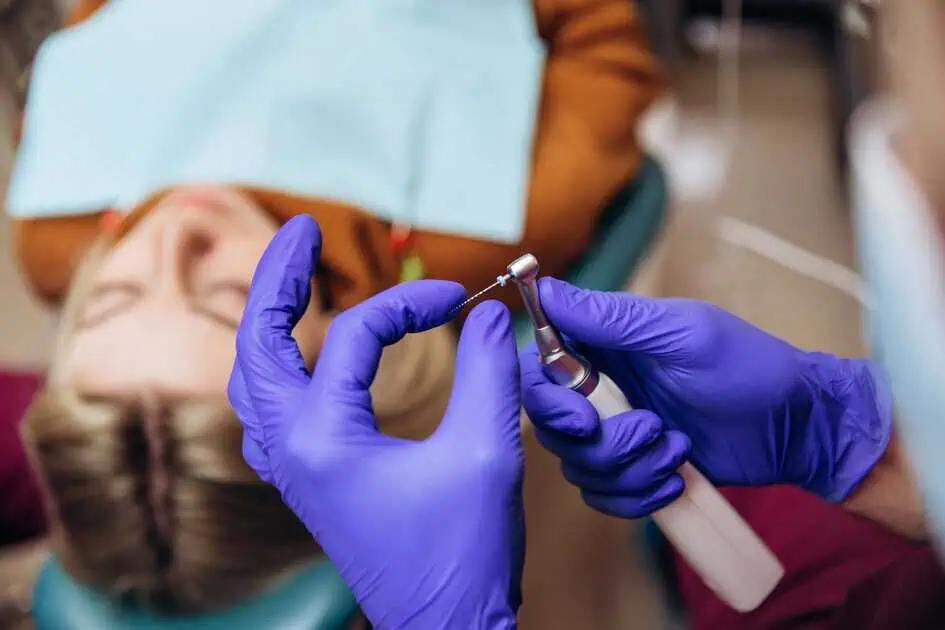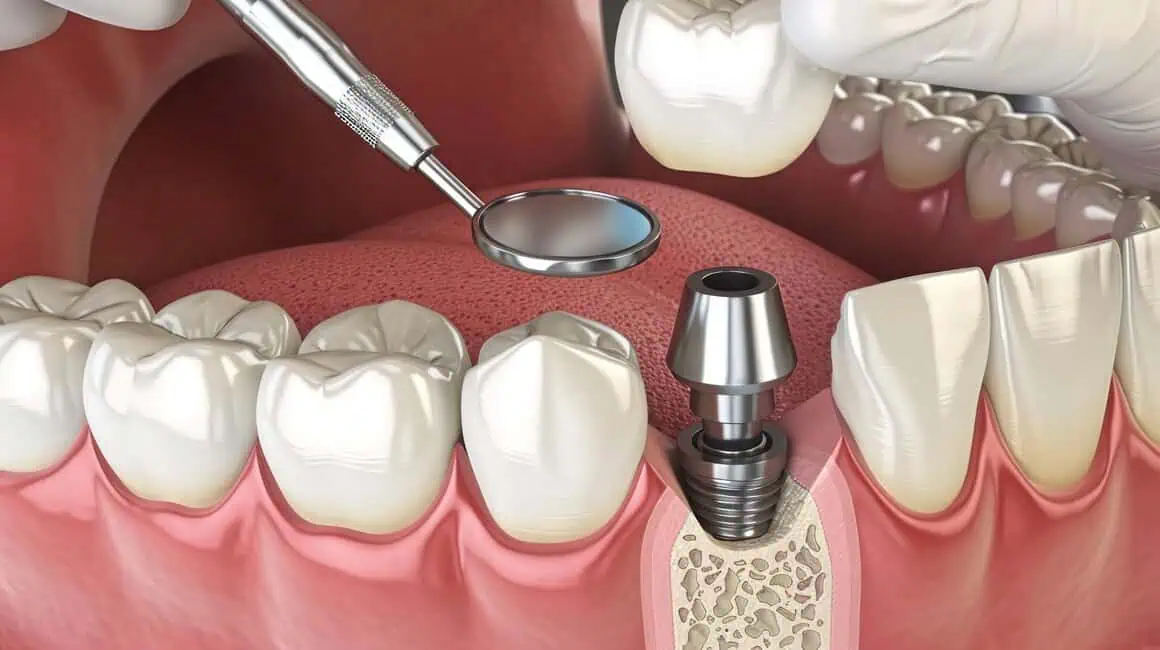A bright, confident smile can light up any room and leave a lasting impression. However, missing teeth can often hinder one’s ability to smile with confidence, causing discomfort and self-consciousness. That’s where dentures come in, a dental prosthesis that can replace missing teeth and restore the beauty of your smile.
With different types of dentures available and various care tips to consider, navigating the world of dentures can be perplexing. Fear not; we will take you through the various types of dentures, their benefits, and essential care tips to help you maintain a confident smile that shines bright like a diamond.
What Are Dentures?
If you’re curious about dentures and what they entail, imagine them as removable dental appliances that can replace missing teeth and restore the function of your mouth. Dentures are custom-made to fit your unique mouth structure and can be partial or complete. They are made from various materials, such as acrylic resin, porcelain, or an assortment of both, to provide durability and a natural look.
Getting dentures usually involves a series of appointments with a dentist or a prosthodontist, who will take impressions of your mouth, make models of your teeth, and create a customized mold for your dentures. Dentures are designed to fit comfortably and securely in your mouth, allowing you to chew, speak, and smile confidently. They also serve as a functional replacement for missing teeth, preventing other teeth from shifting out of place and leading to potential dental issues.
Types Of Dentures
Dentures come in various shapes and sizes, and the type of denture you may need depends on the extent of tooth loss and your oral health. The three most common types of dentures are partial, complete, and implant-supported dentures.
- Partial dentures: These are used when some of your natural teeth are still intact and are designed to fit around your remaining teeth to fill the gaps caused by missing teeth.
- Complete dentures: These are used when all of your natural teeth are missing and replace an entire arch of teeth.
- Implant-supported dentures offer a more stable and secure fit by attaching the denture to dental implants in your jawbone. Implant-supported dentures can be either partial or complete, offering significant benefits such as improved chewing ability and a natural-looking smile.
How To Choose
Choosing the fitting dentures for your needs can be daunting, but there are several factors to consider when making your decision.
- Your oral health and the extent of tooth loss: Determine which type of denture is suitable for you, such as partial dentures for those with a few missing teeth, complete dentures for those with significant tooth loss, or implant-supported dentures for those who desire a more secure fit.
- Your budget: Different types of dentures come with varying costs, so it’s essential to consider your budget and work with your dentist or prosthodontist to find an option that fits your needs.
- The aesthetics of your dentures should match the color, size, and shape of your natural teeth to provide a seamless appearance.
- Working with a skilled dental professional: It’s essential to work with a knowledgeable dentist or prosthodontist who can customize your dentures to your unique needs and provide guidance throughout the decision-making process.
Benefits Of Dentures
Dentures offer numerous benefits beyond just restoring your smile. One of the most significant benefits is the improved ability to eat and speak, as dentures provide functional replacements for missing teeth.
- Improved ability to eat and speak: Dentures provide functional replacements for missing teeth, allowing you to chew food properly and enunciate words correctly.
- Enhanced facial appearance and improved self-esteem: Missing teeth can cause facial sagging and make you look older, but dentures can restore your facial structure, providing a more youthful appearance and a boost in confidence.
- Better oral health: Dentures prevent other teeth from shifting out of place, leading to potential dental issues. They also make preserving good oral hygiene habits easier, such as brushing and flossing, which can prevent gum disease and other dental problems.
Caring For Dentures
Caring for your dentures is essential to maintain their function and appearance. Daily cleaning and maintenance are crucial to prevent bacteria buildup and ensure your dentures last as long as possible. Brush your dentures daily with a soft-bristled brush and mild soap or denture cleaner to remove food particles and stains. Avoid using regular toothpaste, which can be too abrasive and damage your dentures. Rinse your dentures thoroughly after every meal to prevent food buildup, and soak them in water or a denture cleaning solution overnight to keep them moist and clean.
When cleaning or storing them, place them on a soft towel or in a water bowl to prevent them from breaking. Lastly, avoiding common mistakes, such as using hot water to clean your dentures or trying to adjust them yourself, is essential. Instead, seek professional help if you encounter any issues with your dentures.
Adjusting To Dentures
Adjusting to dentures can take time and patience, but with some helpful tips, you can ease the transition and enjoy the benefits of your new smile.
Remember that it’s normal to experience discomfort or difficulty speaking and eating during the initial period. Your mouth needs time to accommodate the new dentures, and taking it slow and being patient with yourself is essential. Start by eating soft foods and cutting them into small pieces to make them easier to chew. Practice speaking out loud to get used to the feel of the dentures in your mouth, and don’t be afraid to take breaks if you feel uncomfortable.
Maintain proper oral hygiene habits, such as brushing your gums and tongue, to prevent gum disease and other dental problems. Lastly, don’t hesitate to contact your dentist or prosthodontist if you experience any persistent discomfort or issues with your dentures.
Takeaway
If you need dentures or other dental solutions, the team at Solomon Family Dentistry can provide you with personalized care and attention. Our skilled dental professionals can help you choose the right type of denture for your unique needs, ensuring you receive the best possible treatment. We also offer comprehensive care tips and guidance to assist you in adjusting to your new dentures and maintaining good oral health.
Don’t let missing teeth hold you back from enjoying your life to the fullest. Contact Solomon Family Dentistry today to experience the best of our services!





